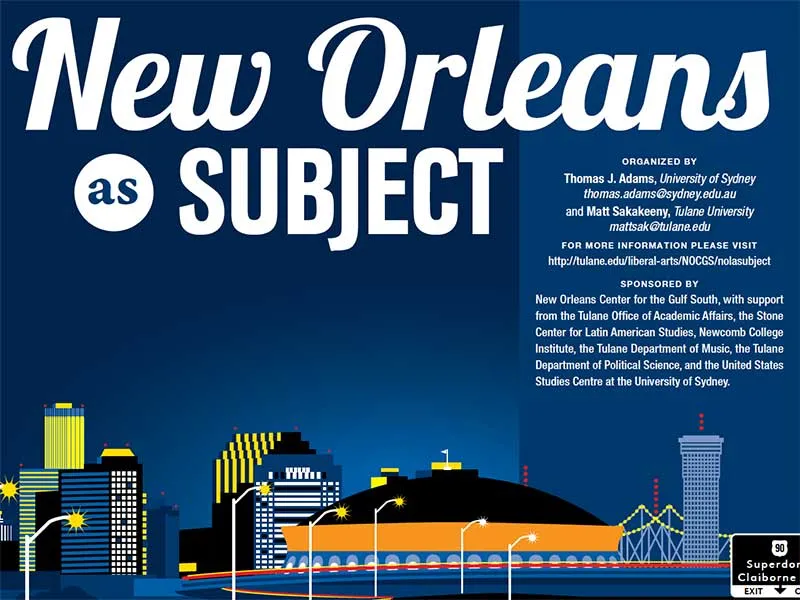
New Orleans has repeatedly been described as a unique city, whose extraordinary culture sets it apart from all others. From Sept. 18 – 20, in a conference entitled “New Orleans as Subject,” leading scholars met on the Tulane campus to explore this characterization and its impact on the city.
According to Matt Sakakeeny, associate professor of music at Tulane and a co-organizer of the event, the goal of the conference was to focus on “the question of what lies behind New Orleans’ exceptional history and what lurks beneath its authentic culture... Our aim," Sakakeeny explained, “is to go beyond the caricature of New Orleans, as one friend put it, as if everyone in this city was a Mardi Gras Indian second-lining down the street, po-boy in hand, on the way to Jazz Fest.”
The need to develop a more complex understanding of New Orleans was underscored from the start by Adolph Reed, Jr.. Reed, a New Orleans native and political science professor at the University of Pennsylvania, is the author of numerous books including Stirrings in the Jug: Black Politics in the Post-Segregation Era, as well as articles that have appeared in The Nation, The Progressive and The Village Voice. In his keynote address, “New Orleans as Subject: Beyond Authenticity and Exceptionalism,” Reed asked if the celebration of New Orleans’ ‘exceptionalism’ often hid darker realities that plagued the city, such as poverty, crime, and educational disparities.
This question was then explored from a variety of academic perspectives, including anthropology, English, history, music, media studies, and political science. Nearly thirty scholars, including co-organizer Thomas Adams, who came from Sydney, Australia, examined the contradictions that existed between the image of the city and its realities, and placed the city within cross-cultural and global perspectives. Their topics ranged from the literary roots of the Creole City and the creation of Congo Square at the New Orleans Jazz Festival, to the economic disparities that underlie the local film industry. The picture that emerged was a city that, while celebrating its unique nature, architecture, food and history, must also come to terms with the conditions of everyday life for New Orleanians.
The “New Orleans as Subject” conference was hosted by Tulane’s New Orleans Center for the Gulf South, with support from Tulane Office of Academic Affairs, the Roger Thayer Stone Center for Latin American Studies, Newcomb College Institute, the music and political science departments, and the U.S. Studies Center of the University of Sydney.

